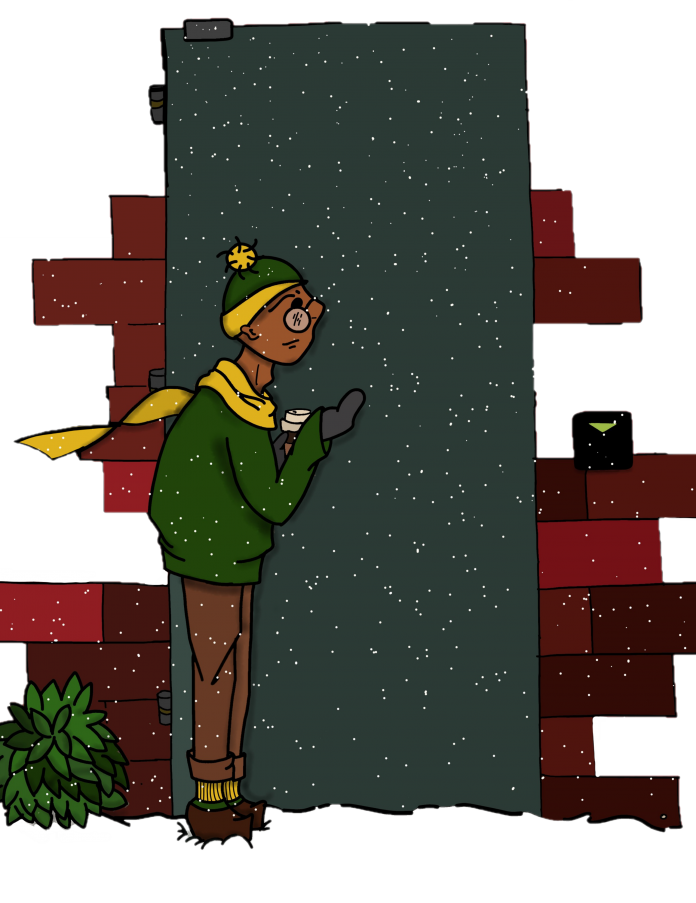Wearing our pajamas inside out. Placing a spoon under the pillow. Gluing our eyes to the television screen until we saw our school name on the news station’s long list of closures. We all hold fond memories of snow days from our youth and now as college students. Like a favorite team winning the Super Bowl or learning that a beloved musician is performing in your area, snow days are unexpected but joy-filled respites from the monotony of daily life for communities to gather together and celebrate. Unfortunately, memories might soon be all that we will have left of them. As a result of remote learning’s expansion due to the COVID-19 pandemic, snow days are quickly on their way to becoming extinct. For the good of both present and future College of William and Mary students, we must not allow snow days to disappear in a post-COVID-19 world.
All things considered, snow days are understandably not very high on anybody’s priority list in this apocalyptic novel of a world in which we are living. Heck, in a remote learning environment, it probably did not even cross the minds of most students that last week’s winter storm would have most likely resulted in a few snow days. But, as the saying goes, it is the little things in life that matter the most, and one does not have to scrape the bottom of the barrel to find people whose fondest memories coincide with snow days. College students need not be exempt from this beloved phenomenon.
Imagine an alternative February 2021, for instance, in which the pandemic was finally resolved or had not even begun at all. Instead, sleep-deprived students woke up one morning in their dorms to find a New England painting outside their windows and an email from the College confirming, “No classes.” Following a swift return to sleep, imagine the quality time that students could spend with their roommates and their hall community while the turbulence of college life is put on hold. For all of the students who are beginning their journey at the College in the spring, what could be a better way to catch up on getting to know everyone than a Sunken Garden snowball fight or a hot chocolate spree in the kitchen?
It would certainly do wonders for students’ mental health. According to a study on “daily micro-breaks and job performance” published in the Journal of Applied Psychology, Vol. 3, “Multilevel path analysis results showed that relaxation, socialization, and cognitive microbreaks were related to increased positive affect at work which, in turn, predicted greater sales performance.” While college students are not the subject of this study, the benefits of brief breaks in long periods of work are wanting of consideration. It is a long number of weeks between the start of the spring semester and the usual placement of spring break. Readers certainly do not need to be reminded of the consequences which arose from the fall 2020 semester’s lack of academic breaks. If the College has an opportunity to briefly free its students from their mentally taxing obligations, would it not be prudent to do so?
Perhaps my own experience on the matter can speak louder than my words. During the fall of my freshman year, classes were canceled for a brief time due to an oncoming hurricane. As a result, my new hallmates and I practically lived in the lounge for hours on end. We played various card games, told entertaining stories about where we were from, and somehow, by some masterful display of persuasion, I even convinced everyone to watch Star Wars. While I cannot remember the name or the duration of the hurricane from which we were sheltering, what I do remember is the borderline familial experience that I shared with my hallmates which, under any normal circumstances, may not have even happened given all of the different lives we led at college.
That was exactly what we freshmen needed at that time: a reminder that, even though we were all living in a new place and the expectations for us had never been higher, we still had the rights to friendship and joyful gatherings. What would the cost of our sacrifices have been, in terms of plain social and mental health, if the College had simply instructed us to learn remotely during that time? How many hundreds, if not thousands, of College students will miss the opportunity to create memories such as these if snow days become extinct?
Lucas Harsche ’23 majoring in History. In addition to The Flat Hat, Lucas is also the treasurer for both Swim Club and Active Minds, and plays violin in the Symphony Orchestra. Email Lucas at lmharsche@email.wm.edu.




































